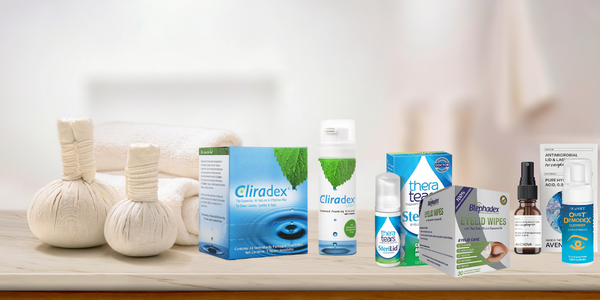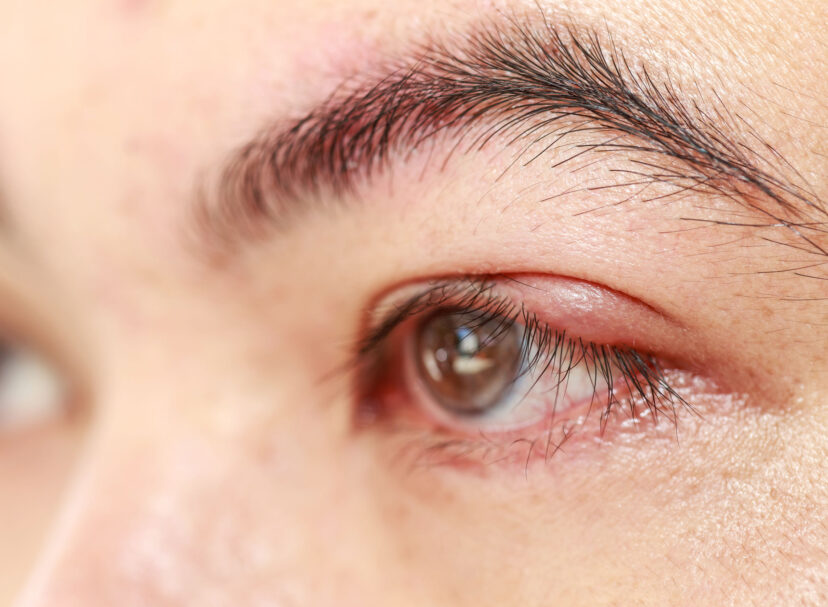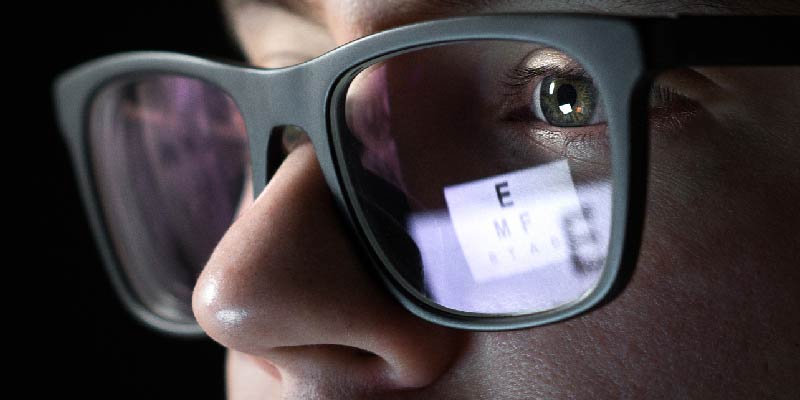For years, baby shampoo has been regarded as a safe product to use to wash eyelids and the sensitive areas around the eyes. While baby shampoos are still generally gentle and safe for accidental eye contact, they may not be the most effective product for cleansing the eye area.
As time has passed and eye science has progressed, fewer doctors are recommending baby shampoo as a healthy alternative for eye cleansing. When it comes to blepharitis and other eyelid conditions, consider the following before reaching for that bottle of baby shampoo!
What is Different About Baby Shampoo?

To understand why baby shampoo may or may not be good for eyelid cleansing, let’s take a step back and define what makes baby shampoo unique. It almost goes without saying that baby shampoo is intended for use on babies and toddlers.
Since many of them claim to be “tear-free,” people assume that it means they are safe to get into your eyes. But no-tears is not synonymous with no damage.
What few of us understand is what makes baby shampoo different.
Baby Shampoo Ingredients
The key difference is in the ingredients! Where typical commercial shampoos might include harsh parabens and sulfates such as sodium laureth sulfate and/or sodium lauryl sulfate, baby shampoos will generally use an ingredient such as PEG-80 sorbitan laurate.
While PEG-80 sorbitan laurate is considered safe and non-toxic, it doesn’t mean that it’s hypoallergenic. In fact, many synthetic ingredients in baby shampoo can cause allergies and disturb the PH balance around your eyes, including:
- PEG-80 Sorbitan Laurate
- Phenoxyethanol
- Cocamidopropyl Betaine
- Added fragrances
It’s also important to take note that not all baby shampoo ingredients are made for direct eye contact. And since shampoos are “detergents intended to wash hair, they are not designed to cleanse your eyelids and can still do damage to your eyes.
An analogy might be regular shampoo = ice cream and baby shampoo = low fat ice cream. The low fat variant might have less calories, but it is still ice cream. Baby shampoo may have gentler ingredients, but it is still a shampoo.
Can Baby Shampoo Damage my Eyes?

Baby shampoo is safe for brief, accidental contact with the eyes — particularly in “no tears” formulas. However, shampoo is not intended to be used on your eyes. Sustained, purposeful contact can lead to eye damage in the following ways:
- Diluted baby shampoo usage directly on the eyelids was shown to damage the goblet cells in the cornea. Goblet cells are partially responsible for the health of the cornea by producing mucins and anti-bacterial peptides.
- Meibomian glands were negatively impacted by baby shampoo usage. Meibomian gland dysfunction (MGD) is a common eye condition which is associated with blepharitis.
At the end of the day, baby shampoo is potentially damaging to your eyes, and it is less effective than dedicated eye cleansing products. Where these products are designed specifically for cleansing eyes, baby shampoos are inferior alternatives.
Why Eyelid Cleansers Outperform Baby Shampoos

Although some associations such as the American Optometric Association and American Academy of Ophthalmology have yet to officially discount the use of baby shampoo as effective eyelid scrubs, more and more physicians are noticing the difference. They are recommending that patients choose an eye cleanser instead of baby products that are not designed for use near the eyes.
So when you’re shopping for a safe, gentle, and effective eyelid cleanser, be on the lookout for these three important qualities:
- A cleanser that is formulated and designed for use specifically on your eyelids and near your eyes.
- Products that are free of fragrances, parabens, alcohol, sulfates, and preservatives.
- Products that contain naturally-derived ingredients, especially a gentle cleansing agent like 4-Terpineol, which has been shown to effectively eliminate Demodex mites on the eyelids and lashes.
Are Eyelid Cleansers a Safe Alternative?
To answer simply: absolutely! Whereas baby shampoos are designed to be detergents, eyelid cleansers are scientifically formulated to be safe and effective cleansers to keep eyelids clean.
There are certain ingredients which may exist in both products, such as polysorbate and glycerin. However, these ingredients exist in a very small concentration within eyelid cleansers, and the amount is tested for eye safety.
Again, just because an ingredient exists in both baby shampoos and eyelid cleansers does not mean that baby shampoo is formulated to be safe for direct eye usage.
Think of the ingredients listed in a cleanser the same as you would the ingredients in a food recipe. The knowledge that two recipes contain sugar isn’t enough. The amount of sugar will determine if it’s safe for a diabetic to consume. If
In this way, eye cleansers may share some ingredients with baby shampoo, but baby shampoo has more. Eye cleansers test their products to ensure that the amount used is safe and gentle when used around your eyes during your skin care routine.
Eyelid cleansers like Cliradex are the only products specifically formulated with potent, natural 4-Terpineol (sourced from Tea Tree Oil) to deliver eye cleansing power without the fluff.
Eyelid cleansers can be effective at relieving:
- Demodex mite infestation
- Redness and swelling
- Burning, itchiness or irritation
- Heavy crustiness
- Dry, flaky skin
- Excessive tearing
Cliradex Natural Relief for Demodex, Blepharitis and Dry Eyes
If you or a loved one is suffering from blepharitis or dry eyes, Cliradex has a product for you! Our towelettes and light foam cleansers are convenient, preservative free, and are packed with powerful 4-Terpineol for effective cleansing.
Rather than reaching for baby shampoo, consider our all-natural formulas to fight ocular irritation, inflammation, and many of the symptoms of common eye conditions such as blepharitis.
For more information, visit our resource center or read about common sources of eye irritation. Cliradex products are recognized as being safe, effective, and easy to use.
Find out how Cliradex can help relieve your eye irritation symptoms today!





